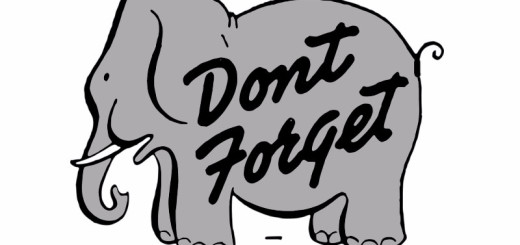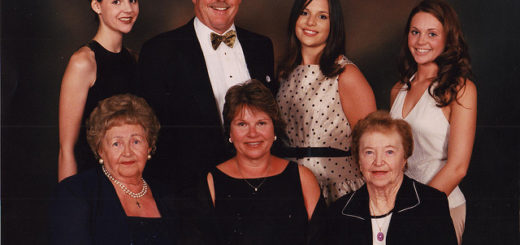Understanding Someone Diagnosed As Mentally Ill
Mental health is a growing concern in our post-modern world. We need to understand how to approach with our mentally ill relatives, friends,neighbours and colleagues.
This is because there is today greater confusion as to what is true (and what is false) in a world where people are waking up to the influences of commercial advertising, political propaganda, and sources of ‘fake news’.
Family members who exhibit symptoms that affect their mood, thinking and behavior are sometimes diagnosed as mentally ill. Such diagnosis ranges from bipolar, obsessive compulsive disorder, depression, anxiety, addictions to eating disorders.
Read on for an alternative perspective to mainstream psychiatric understanding of the situation and how you can be part of the healing process.

The function of the symptom (as in all illnesses) is to heal all the systems that organism is in interaction with from the smallest to the largest. The person’s body, the family they belong to, neighbours, colleagues, peers, friends, sometimes even as far as the levels of a nation and the planet.
The Systems View of Mental Illness
In systems theory the whole is bigger than its parts and all parts are interrelated; meaning they constantly influence each other through patterns of interactions beyond their immediate conscious awareness.
Problems occur when old patterns need updating but the system fails to adapt naturally. The mentally ill person carries a symptom of the whole system. (In fact all components of the system carry symptoms yet for some reason these are masked and get projected onto the symptom bearer who enacts them as disturbing behaviors around which the entire system must organise itself).
The function of the symptom (as in all illnesses) is to heal all the systems that organism is in interaction with, from the smallest to the largest. The person’s body, the family they belong to, neighbours, colleagues, peers, friends, sometimes even as far as the levels of a nation and the planet.
Use Your Family Tree
If there is a mentally ill person in your family today, the roots may lie in your ancestors going back as far as seven generations. Marc Wollynn describes recent scientific research about how this works at the physical level: The effect of traumatic experiences pass down the generations through marks on the DNA.
In family therapy we use family trees as one our main tools to identify the stressors contributing to the current situation of the family system with a mentally ill member.
Patterns either repeat across generations; or attempts not to repeat them leads family members behave in illogical ways. For example Julia’s migration to another city caused big family upheaval and saddened parents, especially their mother (in the previous generation). Julia’s younger sister Rose, was very angry with Julia as their mother became severely depressed. Rose became a very anxious person; often with physical and mental health problems that required her family members to be extra protective of her at their expense. Of course moving away for family members was a taboo.
However, her daughter Amelie, despite all her efforts to stay close to her mother she found herself in a distant city with a newborn baby. Rose withdrew all physical and emotional connection from Amelie by refusing to visit or to phone and by being cold when Amelie phoned.
Two years on, Rose is still projecting her anger towards Julia for moving away, onto her daughter Amelie. Having been brought up as a parental child; very close caring daughter, Amelie repeats the depression of her grandmother, unable to enjoy her motherhood, unable to make new, meaningful connections and unable to settle in the new city.
Rose, with her behaviour creates the same context for Amelie’s daughter; which is to grow up with a depressed mother.
When a person is locked in such family dramas the feelings of stuck-ness and helplessness may pervade in the whole system.
The question is, how can you approach to your wife and other family members (if you are Amelie’s or Rose’s husband for example)?
How could you have been if you were growing up as Amelie; Rose’s daughter?
Release with Family Therapy, Family Constellation or Any Other Method
We are connected with each other and with everything, living and non-living. The situations and conditions in our lives are partly due to our own doing, but partly due to our family, national and planet’s history. These situations present themselves for us to transform and heal, not just for ourselves; not just for your future generations but for the humanity and our planet.
When we are ready and willing to make the shift the tools present themselves.
Sometimes you are given the name of a therapist, or you search on the Internet and feel close to a professional. Another time you are invited to a family constellation gathering. It is possible you watch a video on You tube or read a book or a short blog post like this one. And you make the shift that frees you from the impasse of your ancestors.
This website is full of such tools, like the Sedona Method, or Hooponopono. Principles of how to relate one another, including yourself to promote healing in happiness and joy.
Such transformations might seem to come in stages yet each is instantaneous.
The Practice Of Living With A Mentally Ill Relative
Now that we laid the background for the system of a mentally ill relative, here is how you can approach on a daily basis to promote a release for yourself and your system:
- Research your family tree, learn how to draw and meditate on it
- Focus on healing parts of yourself that is projected in your mentally ill family member
- Stay compassionate, loving and kind to them
- Protect your boundaries so that the illness does not take over your health as well
- Ask for help; from other family members and from professionals
Thank you for who you are; your suffering and healing contributes to the global healing.
You can listen to the soundtrack of this video from here.




